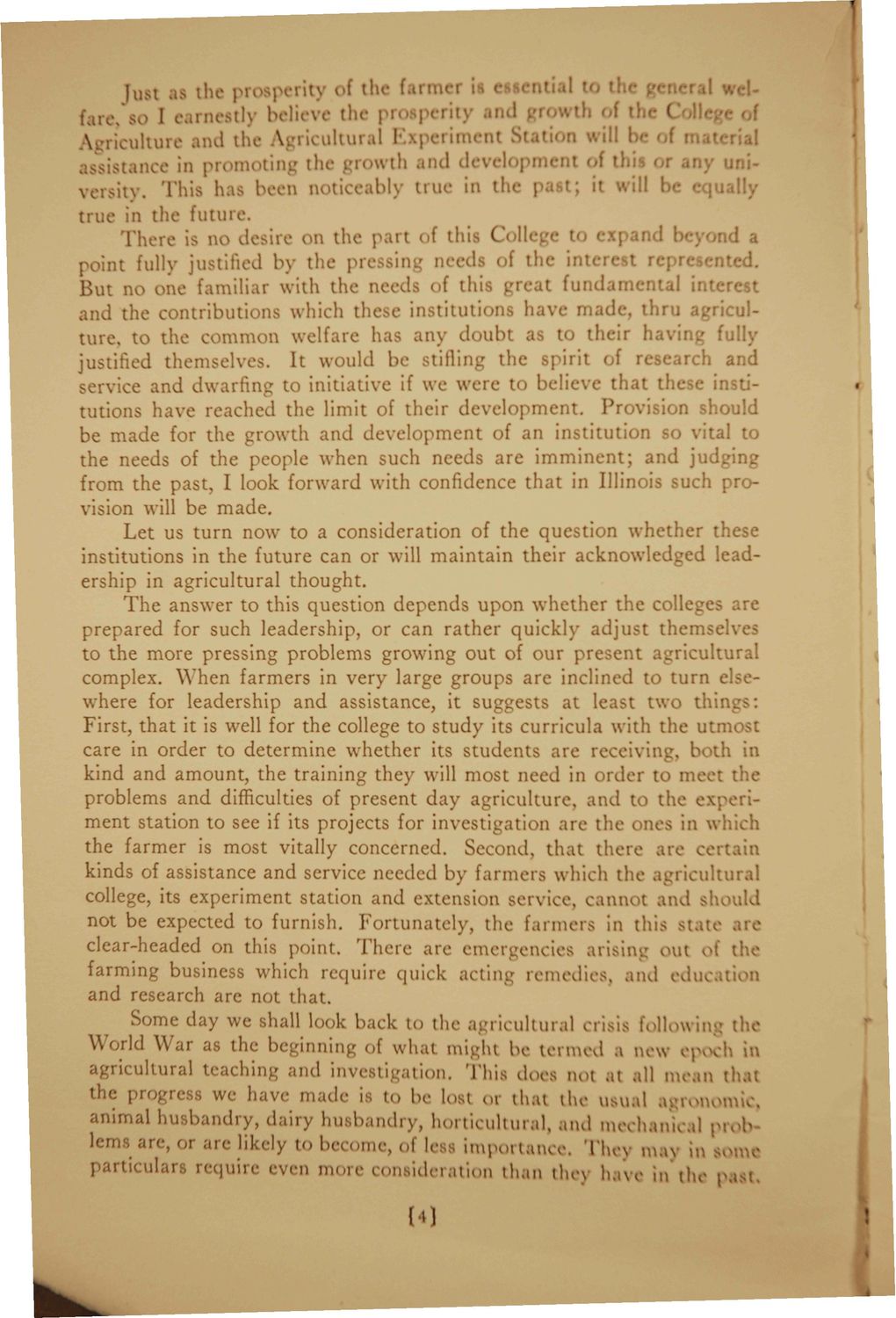| |
| |
Caption: Booklet - Agricultural College and Experiment Station (1924)
This is a reduced-resolution page image for fast online browsing.

EXTRACTED TEXT FROM PAGE:
lust as the pro8p< ity of the fan i is ease* fa re/so I earnestly belie . the prosj ril and g culture and the Agiicultural I u to the gc f tl I 1 we\ ^c of al ninent Station will be of t\h stance in pr< moting the 1 owth and development of this or an) iversity, 'This has been noti< lably true in th past; it II be equallj true in the future. There is no done on the part of this ( He ro i .panel beyond a p nt full) justified by the pre Jing needs of the ini It r rescn But D ne familiar with the needs of this great fundamental interest and the contributions which the.se institutions have D LIU agriculture, to the common welfare has any doubt as to their havir full;. justified themselves. It would be Btifling the spirit of I arch and service and dwarfing to initiative if we were to believe that these institutions have reached the limit of their development. Provision should be made for the growth and development of an institution so vital to the needs of the people when such needs are imminent; and judging from the past, I look forward with confidence that in Illinois such provision will be made. Let us turn now to a consideration of the question whether th< e institutions in the future can or will maintain their acknowledged leadership in agricultural thought. T h e answer to this question depends upon whether the college are prepared for such leadership, or can rather quickly adjust themseiv to the more pressing problems growing out of our present agricultural complex. When farmers in very large groups are inclined to turn elsewhere for leadership and assistance, it su :ests at least two thin. : First, that it is well for the college to study its curricula with the utmost care in order to determine whether its students are receiving, b th i: kind and amount, the training they will most need in order t meet the problems and difficulties of present day agriculture, and to the experiment station to see if its projects for investigation are the ones in which the farmer is most vitally concerned. Second, that there are certain kinds of assistance and service needed by farmers which the agricultural college, its experiment station and extension service, cannot and sh lid not be expected to furnish. Fortunately, the farmers in this state are clear-headed on this point. There are emergencies arising out < the farming business which require quick acting remedies, and cdiu ion and research are not that. Some day we shall look back to the agricultural crisis follow ii the World War as the beginning of what might be termed a new ep in agricultural teaching and invest! ition. This does not at all mean that the prpg . we have made is to be lost or that the usual WOmiC, animal husbandry, dairy husbandry, horticultural, and mechaui ii pi len , or at likely to b< -me, of I, i m j r t a n p|l(.x m a m , parti liars require even moie com leration than thej h. \ in the past (4)
| |